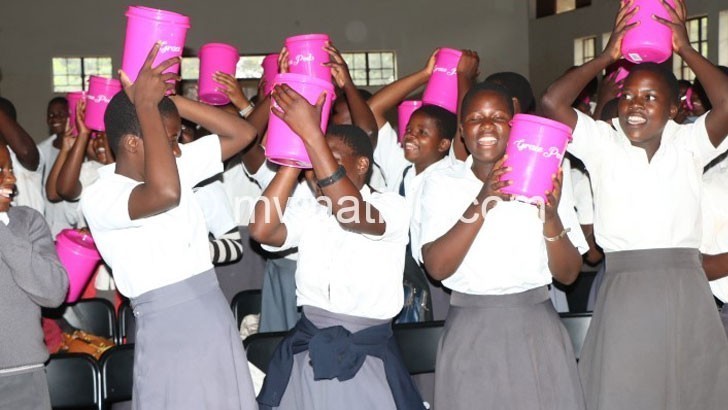Menstruation agonies of the girl child
Jennifer (not real name) is a Form Two girl at Ngowe Community Day Secondary School (CDSS) who missed classes the last two days of last week.
When the teacher inquired about the reasons for her absence, her friends just laughed it away and feigned ignorance.
The teacher, an elderly woman with accumulated years of teaching experience, got the message. Jennifer had just committed a forgivable felony associated with every girl. She was in her menstruation period.

Because of her monthly menstrual periods and the fact that she couldn’t afford sanitary pads, the best option for her was to stay at home and avoid disgracing herself.
Previously, whenever girls like her were in their menses, absconding classes was a forgivable sin since school authorities understood that most of them could hardly afford sanitary pads; hence, opting to stay at home.
This was a better option than risk embarrassing themselves in front of their peers, especially boys who had no idea that such is part of womanhood, therefore, a normal phenomenon.
The teacher, Ethel Mangwiro Jiya, who also happened to be the school’s head teacher, had a clear understanding when the girls laughed off her enquiry about the absenteeism.
In an interview, she disclosed that there are usually between five to 10 girls missing classes every week because they can’t afford sanitary pads during menstruation.
Said Jiya: “In extreme cases, when the period starts while she is at school, we can give her toilet paper as an emergency response because as a school, we also don’t have a provision for taking care of such situations.”
This is the reason the head teacher was so excited when her girls were received re-usable sanitary pads from Rotary Club of Lilongwe-Lingadzi.
The philanthropic club decided to donate 200 pieces of reusable sanitary pads in a package of five pads, four bars of laundry soap, underwear and an instructions document which has detailed information on how best to use and care for the pads.
All the things were delivered to the girls in a small plastic bucket that would serve as a storage facility of the items.
President of Rotary Club of Lilongwe-Lingadzi, Carol Makoko, said the pads were sourced from Grace Pads, an organisation that provides menstrual hygiene management in the country by providing of reusable sanitary pads to girls, among other things.
“We are happy to make this donation and positively contribute to girls’ education at this secondary school. On the other hand, we have also ensured that these girls’ dignity is protected by ensuring that they don’t get disgraced by failure to take care of their menstrual hygiene because of economic hardships,” she said.
Before making the donation, the Rotarians delivered talks in turns to the girls, encouraging them to work hard in class and secure a good future for themselves.
Those who delivered motivational talks were both men and women. Among them was Makoko, Evelyn Van Dam Sibindi and another member Limbani Kakhome.
Sibindi shared with the girls the importance of making sure that they do well in class regardless of any challenges.
She told them that as long as they work hard, they can achieve big things in life. She also told them that they shouldn’t rush into early sexual relationships which have proved to be detrimental to girls’ education.
On his part, Kakhome urged the girls to work hard and be focused in life, saying that no one has ever been disappointed with hard work.
He advised them to be angry every time they think that their performance in class is dwindling so that they should work extra harder and achieve better grades in class.
Kakhome also told them that through hard work, he has managed to be where he is because he opted to get out of the conform zone after his father spoke to him and made him realise what was going to happen if he didn’t finish school.
“My own dad talked to me about failure in class and made me understand that if I continued that way, I was going to be doomed and struggle economically the rest of my life,” he said.





